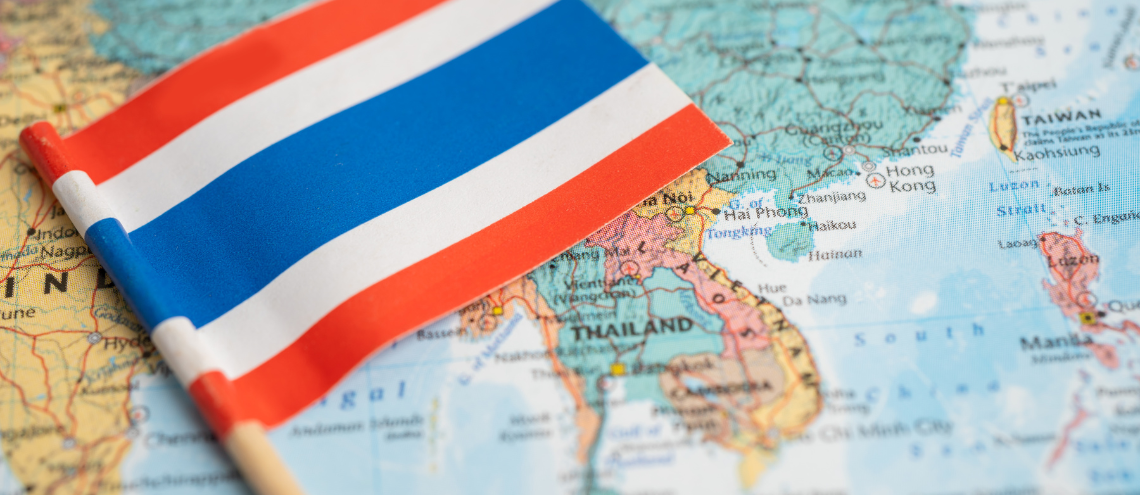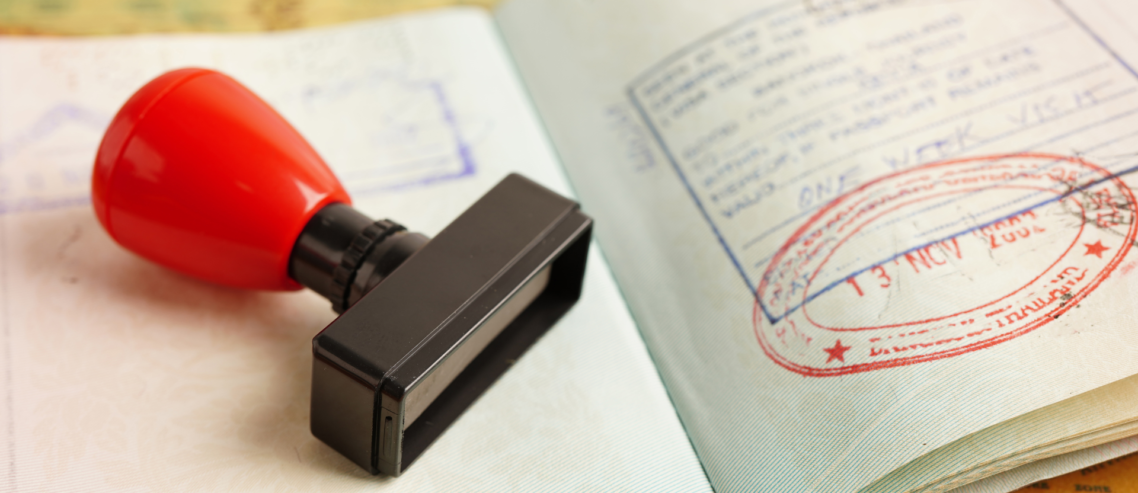Thailand’s New ETA Requirement: What Expats and Travelers Need to Know
As of December 2024, Thailand has introduced a new Electronic Travel Authorization (ETA) requirement for visa-free visitors, transforming the country’s immigration process. This change impacts travelers from over 100 countries, including the United States, United Kingdom, Australia, and European nations, aligning with similar systems already in place globally.
In this Pacific Prime Thailand article, we’ll dive into what the new ETA requirement means, how it fits into broader changes in Thailand’s visa policy, and what expats in Thailand need to do to stay prepared.
Why Has Thailand Introduced the ETA?

Thailand introduced the ETA system as part of its immigration reform to improve border security and manage the rising number of visitors. With pre-pandemic arrivals exceeding 39 million, the system aims to streamline entry while enhancing security checks before travelers board flights.
Similar to the EU’s ETIAS, the USA’s ESTA, and Canada’s eTA, Thailand’s ETA will help identify potential risks early, ensuring a safer and more efficient immigration process at airports to speed up arrivals while mitigating security threats.
Key Details of the ETA Requirement
The ETA requirement applies to travelers of over 100 nationalities from visa-exempt countries. Here are the key points expats and frequent travelers need to keep in mind:
- Mandatory for Visa-Free Travelers: Visitors who previously enjoyed visa-free access to Thailand will now need to apply for an ETA before arrival. This includes travelers from major expat-origin countries such as the United States, United Kingdom, Australia, Japan, and Canada.
- Online Application Process: The ETA can be applied online through Thailand’s e-Visa platform. The process involves submitting basic personal information, travel details, and possibly supporting documents. Approval is typically granted within 72 hours, although travelers are advised to apply well in advance of their planned travel date.
- No Fees Announced Yet: While many countries charge a nominal fee for ETAs (e.g., the USA charges $21 for ESTA), Thailand has yet to announce the cost of its ETA. It is expected that a fee structure will be unveiled before the full rollout in mid-2025.
- Single-Entry Approval: Each ETA approval is valid for a single trip, unlike multi-entry visas. Travelers planning multiple visits to Thailand within a year will need to apply for separate ETAs for each trip.
- Access to Automated Immigration Gates: One benefit of the new system is faster immigration processing. Approved ETA holders can use automated immigration gates at airports, reducing wait times significantly.
How the ETA Fits Into Thailand’s Broader Visa Policy
The introduction of the ETA is part of a series of visa updates Thailand has made in recent years, aimed at catering to different types of visitors and addressing evolving travel trends. These changes reflect Thailand’s strategy to position itself as a top destination for tourism, digital nomads, and expats.
With that in mind, let’s take a look at some recent updates below:
- Extended Visa-Free Stays: In 2022, Thailand extended the visa-free stay period from 30 days to 45 days to encourage longer stays. This was particularly popular among tourists and short-term business travelers.
- Special Tourist Visa (STV): The STV was introduced during the COVID-19 pandemic to attract long-stay tourists and revive the economy. This visa allows stays of up to 270 days, making it a preferred option for travelers wanting extended stays without committing to long-term residency.
- Digital Nomad Visa: In response to the growing trend of remote work, Thailand launched a new visa for digital nomads in 2023. Known as the “Destination Thailand Visa” (DTV), this visa offers a five-year multi-entry option with the flexibility of stays of up to 180 days per visit.
- Long-Term Resident (LTR) Visa: The LTR visa targets wealthy individuals, retirees, and skilled professionals. It provides a 10-year residency with multiple benefits, including simplified visa renewal processes and tax incentives.
- Visa Exemption Extension: From October 2023, the standard visa-free entry period for tourists was extended from 30 days to 60 days, with the option of a 30-day extension. This change was made to encourage longer stays and higher spending among tourists.
Implications for Expats Living in Thailand

For expats residing in Thailand, the ETA requirement primarily impacts their visiting friends and family. If you frequently host visitors from visa-exempt countries, they will now need to apply for an ETA before travel. It’s crucial to inform them of this change to avoid last-minute disruptions.
For expats who travel frequently in and out of Thailand, this could mean additional steps before each trip. Even if you hold a long-term visa, such as the LTR or DTV, you may need an ETA for short trips back into Thailand, depending on your visa type and travel plans.
To ensure smooth travel plans, we recommend expats reach out to immigration advisors who can offer specific guidance based on individual circumstances. They can clarify how the new ETA system may impact your travel, especially if you’re frequently entering and exiting Thailand.
ETA vs. Visa: What’s the Difference?
It’s important to differentiate between the new ETA and traditional visas. The ETA is not a visa but an authorization allowing entry for eligible visa-free visitors. Here’s a comparison:
| ETA | Visa | |
| Application | Online, before travel | Online or at Thai embassies |
| Duration | Single-entry, up to 60 days | Varies (30 days to 10 years) |
| Processing Time | Within 72 hours | Can take weeks |
| Purpose | Tourism, short visits | Tourism, business, long-term |
| Fees | TBD (expected to be nominal) | Varies based on visa type |
How to Apply for the ETA
The process of applying for Thailand’s ETA is simple and can be done entirely online. Below, we’ll walk you through the necessary steps to ensure your application is smooth and straightforward.
Whether you’re visiting Thailand for business or leisure, following these steps will help you secure your ETA approval in no time:
- Visit the Official ETA Portal: Go to Thailand’s e-Visa website and select the ETA application option.
- Provide Personal Information: Enter your full name, passport details, and contact information.
- Upload Supporting Documents: You may need to provide a copy of your passport, travel itinerary, and proof of accommodation.
- Pay the Application Fee (if applicable): Follow the instructions for payment once the fee structure is announced.
- Receive Your ETA: Approval typically arrives via email within 72 hours. Print a copy or save it on your phone for reference upon arrival.
Tips for a Smooth Application
To ensure a hassle-free experience when applying for Thailand’s ETA, it’s important to follow a few simple yet essential guidelines. The process is designed to be straightforward, but taking the time to properly prepare will help avoid any unexpected complications.
By following these tips, you can ensure that your application goes smoothly, leading to quicker approval and easier entry into Thailand:
- Apply Early: Don’t leave the application until the last minute. Apply at least a week before your travel date to account for any processing delays.
- Double-Check Details: Errors in your application, such as incorrect passport information, can lead to delays or denials. Review everything carefully before submitting.
- Keep Copies Handy: Print your ETA approval or have a digital copy ready to show at immigration checkpoints.
Traveling to Thailand? We’ve Got You Covered
As Thailand rolls out its new ETA requirements and expands visa-free options, planning your next trip just got a bit easier. However, it’s important to be fully prepared to enjoy your stay without any hassles.
Alongside securing your ETA, having robust international health insurance is key for a stress-free experience. Health coverage provides peace of mind and access to Thailand’s excellent private healthcare system.
At Pacific Prime Thailand, we understand the unique needs of expats and offer tailored health insurance plans. Our experienced team compares plans from the world’s best insurers to help you find the best coverage for your needs and budget. With two decades of expertise, we’re here to guide you through the process and ensure your health is in good hands.
Contact us today to learn more about your options, or get a free, no-obligation quote from our online quote tool!
- Complete Guide to Preventing Hepatitis A and B in Thailand - March 27, 2025
- What is the State of Mental Health in Thailand? - March 26, 2025
- An Expat’s Guide to Dental Care and Insurance in Thailand - March 19, 2025




Comments
Comments for this post are closed.
We'll notify you
when our team replies!